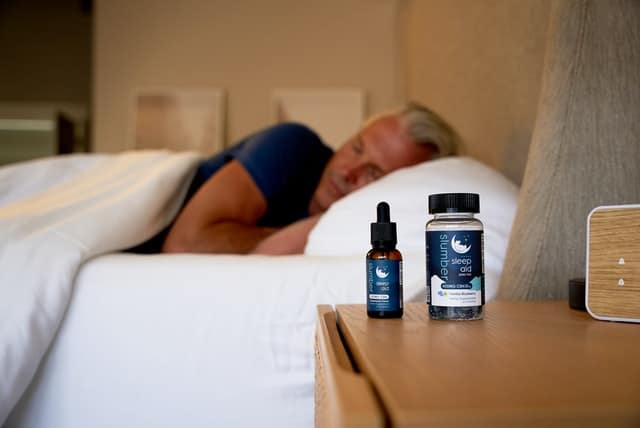Sleep deprivation is a common problem that affects millions of people worldwide. It can lead to a range of negative consequences, including impaired cognitive function, mood disorders, and an increased risk of accidents and injuries. In this article, we’ll explore the dangers of sleep deprivation and provide tips for improving your sleep habits.
Definition: Sleep deprivation is the condition of not getting enough sleep, which can negatively impact various aspects of life, including work performance.
Meaning: Chronic lack of sleep can reduce cognitive function, impair judgment, and decrease overall productivity. Improving sleep quality and quantity is crucial for enhancing work performance and maintaining optimal health.
Table of Contents
Understanding Sleep Deprivation and Productivity

In today’s fast-paced world, sleep often takes a backseat to work demands, social commitments, and screen time. However, the effects of sleep deprivation on productivity are profound and far-reaching. Sleep deprivation occurs when an individual gets less sleep than needed to maintain optimal health and functioning, leading to a range of cognitive, physical, and emotional challenges.
Understanding the critical link between sleep and productivity is essential for anyone aiming to perform at their best. Adequate sleep is not just a luxury but a necessity for maintaining high levels of focus, creativity, and efficiency. In this article, we will explore the impact of sleep deprivation on productivity, identify signs that your lack of sleep is affecting your work, and offer practical strategies to improve your sleep habits for better performance. By prioritizing sleep, you can unlock your full potential and achieve greater success in your professional and personal life.
Dangers of Sleep Deprivation – Understanding the Importance of Sleep.

Sleep is essential for our physical and mental health. It allows our bodies to repair and regenerate, and our brains to process and consolidate information. Lack of sleep can lead to a range of negative consequences, including decreased productivity, impaired memory and concentration, and an increased risk of chronic health conditions such as obesity, diabetes, and cardiovascular disease. It’s important to prioritize sleep and make sure you’re getting enough restful sleep each night.
The Physical and Mental Effects of Sleep Deprivation.

Sleep deprivation can have a range of negative effects on both our physical and mental health. Physically, it can lead to decreased immune function, increased inflammation, and an increased risk of chronic health conditions such as obesity, diabetes, and cardiovascular disease. Mentally, it can lead to decreased cognitive function, impaired memory and concentration, and an increased risk of mood disorders such as depression and anxiety. It’s important to prioritize sleep and make sure you’re getting enough restful sleep each night to avoid these negative consequences.
How to Improve Your Sleep Habits.

There are several ways to improve your sleep habits and ensure that you’re getting enough restful sleep each night. First, establish a consistent sleep schedule by going to bed and waking up at the same time each day, even on weekends. Avoid caffeine, alcohol, and nicotine before bedtime, as these can interfere with sleep. Create a relaxing bedtime routine, such as taking a warm bath or reading a book, to signal to your body that it’s time to sleep. Finally, make sure your sleep environment is comfortable and conducive to sleep, with a cool temperature, comfortable mattress and pillows, and minimal noise and light.
Tips for Getting Better Sleep.

If you’re struggling with sleep deprivation, there are several things you can do to improve your sleep habits. First, establish a consistent sleep schedule by going to bed and waking up at the same time each day, even on weekends. Avoid caffeine, alcohol, and nicotine before bedtime, as these can interfere with sleep. Create a relaxing bedtime routine, such as taking a warm bath or reading a book, to signal to your body that it’s time to sleep. Finally, make sure your sleep environment is comfortable and conducive to sleep, with a cool temperature, comfortable mattress and pillows, and minimal noise and light. By making these changes, you can improve the quality and quantity of your sleep, leading to better health and well-being.
When to Seek Professional Help for Sleep Issues.

While making lifestyle changes can often improve sleep, there are times when professional help may be necessary. If you have been consistently struggling with sleep for several weeks or months despite making changes to your sleep habits, it may be time to seek help from a healthcare professional. They can help identify any underlying medical or psychological conditions that may be contributing to your sleep issues and provide appropriate treatment. Additionally, if you experience symptoms such as loud snoring, gasping for air during sleep, or excessive daytime sleepiness, it may be a sign of a sleep disorder such as sleep apnea, which requires medical attention. Don’t hesitate to seek help if you are struggling with sleep issues – it’s an important aspect of overall health and well-being.
Frequently Asked Questions

How does sleep deprivation impact productivity?
Answer: Sleep deprivation reduces cognitive function, decreases concentration, and increases errors, leading to lower productivity and performance.
What are the signs of sleep deprivation affecting work performance?
Answer: Signs include difficulty focusing, frequent mistakes, irritability, slower problem-solving skills, and increased absenteeism.
How can improved sleep boost productivity?
Answer: Adequate sleep enhances cognitive function, memory, decision-making, and overall energy levels, leading to higher productivity.
What strategies can help improve sleep for better productivity?
Answer: Maintain a regular sleep schedule, create a restful sleep environment, limit caffeine and screen time before bed, and practice relaxation techniques.
How much sleep is ideal for optimal productivity?
Answer: Most adults need 7-9 hours of sleep per night to function at their best and maintain high productivity levels.
Hirav Shah’s wisdom lines on Sleep Deprivation and Productivity

The Link Between Sleep Deprivation and Productivity
1. “Sleep deprivation is the silent productivity killer.”
Explanations: Lack of sleep leads to decreased cognitive abilities and lower work output.
Strategy: Prioritize sleep as a key component of productivity.
Execution: Ensure a consistent sleep schedule to improve daily performance.
Recognizing the Impact of Sleep Deprivation on Work
2. “A tired mind cannot perform at its peak.”
Explanations: Mental fatigue from lack of sleep hampers efficiency and creativity.
Strategy: Integrate healthy sleep habits into your lifestyle.
Execution: Avoid late-night work and create a relaxing bedtime routine.
Enhancing Productivity Through Better Sleep
3. “Quality sleep is the foundation of productive days.”
Explanations: Restorative sleep boosts mental clarity and energy levels.
Strategy: Focus on achieving both quality and quantity of sleep.
Execution: Optimize your sleep environment and establish a consistent routine.
Overcoming Sleep Deprivation to Improve Productivity
4. “You can’t expect peak performance on an empty sleep tank.”
Explanations: Sufficient sleep is essential for maintaining high performance.
Strategy: Treat sleep as a non-negotiable part of your schedule.
Execution: Manage time effectively to ensure enough rest each night.
Sleep as a Key Driver of Productivity
5. “Investing in sleep is investing in productivity.”
Explanations: Prioritizing sleep leads to better work results and overall well-being.
Strategy: Understand the value of sleep and make it a priority.
Execution: Adjust your lifestyle to support healthy sleep habits and improve daily productivity.
Understanding Sleep Deprivation and Productivity
Final Words

Sleep deprivation is a significant barrier to achieving optimal productivity and overall well-being. The detrimental effects of insufficient sleep on cognitive function, emotional stability, and physical health underscore the importance of prioritizing rest. By understanding the impact of sleep deprivation on productivity, recognizing its signs, and implementing effective strategies to improve sleep quality, individuals can enhance their performance and efficiency.
Investing in good sleep habits is a powerful tool for boosting productivity. Establishing a consistent sleep schedule, creating a conducive sleep environment, and adopting relaxation techniques can lead to more restful nights and more productive days. Remember, sleep is not a luxury; it is a fundamental component of a healthy, successful, and fulfilling life. Prioritize your sleep, and watch as your productivity and overall quality of life improve dramatically.










